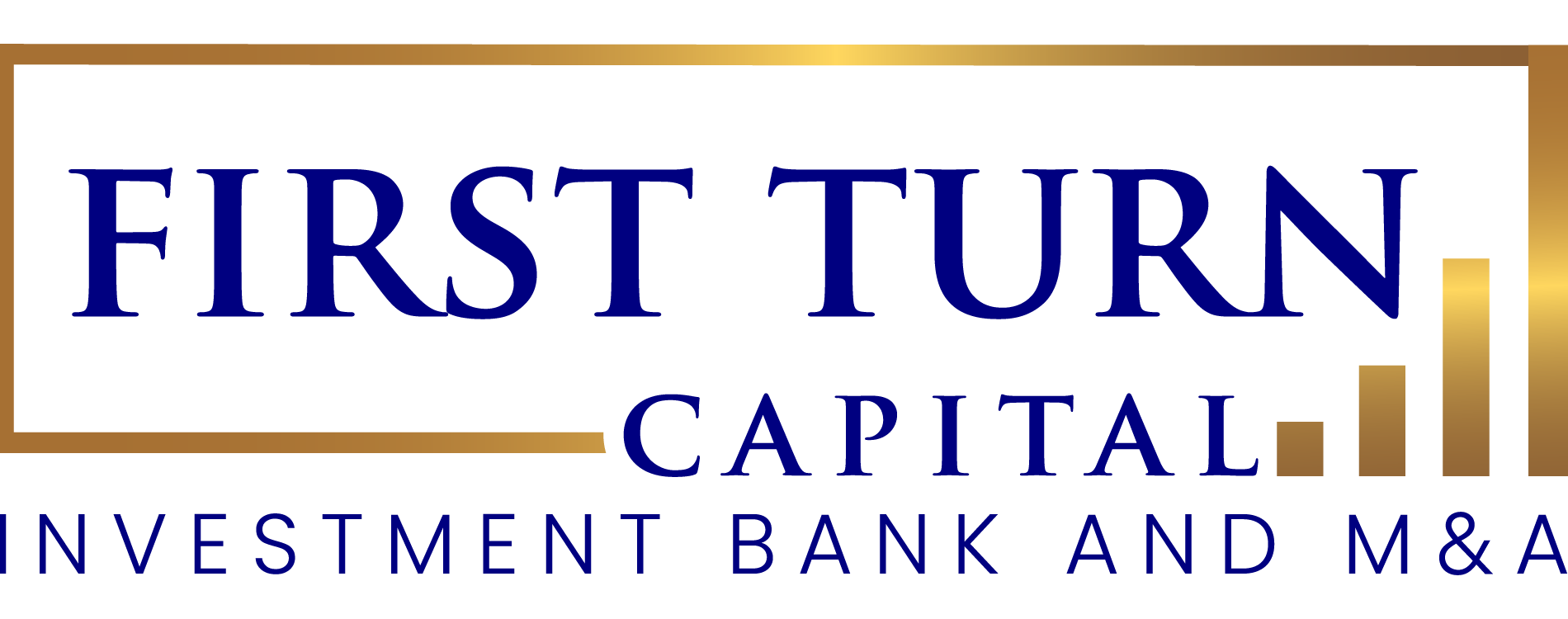Sell-Side



Finding the Right Buyer and Closing the Best Deal
Maximizing Value in Every Business Sale
Sell-Side Advisory Strategies Designed and Executed by ExpertsYou've built something valuable, and now it's time to make sure you get the best return while protecting your legacy. A well-structured sale maximizes value and ensures that you walk away with the best terms possible.
First Turn Capital's sell-side advisory services guide business owners like you through the sale process. We find the right buyers, structure the right deal, and manage every detail.
Our Expertise in Sell-Side Advisory
Our team has firsthand experience as business owners, and we understand the emotional and operational challenges of selling a business. Our experts know how companies can be devalued and taken advantage of, and we make sure our clients don't experience that.
What Is Sell-Side Advisory?
Finding the Right Buyer and Closing the Best Deal
Sell-side advisory is a service offered by investment banks like First Turn Capital. The service helps business owners sell their companies, assets, or equity stakes. Sell-side analysts position the business strategically and negotiate the right terms for a smooth sale.
First Turn Capital's sell-side advisory services cover:
- Valuation and market positioning
- Buyer sourcing and competitive bidding
- Deal structuring and negotiation
- Due diligence and closing support
Selling a business is a complicated process with a lot of moving parts. Without expert guidance, many business owners end up leaving money on the table or getting stuck in prolonged negotiations.
At First Turn Capital, our role is to make sure you secure the deal you deserve without any unnecessary roadblocks.
Sell-Side Advisory Services from First Turn Capital
Smart Sell-Side Strategies
First Turn Capital provides end-to-end sell-side advisory services designed to get you the best deal while minimizing risks and disruptions to your business.
Business Valuation and Market Positioning
Before you sell your business, you need to know exactly what it's worth—and how to position it for maximum value. We assess your company's financials, operations, and market position to create a data-driven valuation.
We use valuation methods such as:
- Market capitalization: Multiplying the business' share price by the total number of shares outstanding.
- Times revenue method: Under this method, the company's revenue (over a specific period) is applied to a specific multiplier, which varies depending on the market and industry the company belongs in.
- Earnings multiplier: An alternative to the times revenue method, the earnings multiplier uses the company's profits in its computation.
- Discounted cash flow (DCF) method: Estimating future earnings and profitability to get the business' current market value.
- Book value: This is based on the difference between the total liabilities of a business and its total assets.
- Liquidation value: Refers to the net amount that a company will get after liquidating assets and settling liabilities.
But numbers alone don't sell a company. Presentation matters.
We create a clear narrative that highlights:
- Your company's competitive advantage and market potential.
- Growth opportunities that make your business an attractive investment.
- Main operation strengths and financial performance

Finding the Right Buyer and Creating Competition
Some buyers just want a good deal. Others see the long-term potential of the company. Our job is to find the right fit: a buyer who values your business and is willing to pay for its true worth.
We utilize a large network of strategic buyers, private equity firms, and institutional investors to source the best opportunities for our clients.
- We identify serious buyers who align with your goals.
- We create a structured, competitive process that drives up valuations.
- We maintain confidentiality to prevent disruptions to your business.
The best deals happen when multiple buyers are competing, and First Turn Capital makes that happen.

Deal Structuring and Negotiation
Without the right negotiation strategy, you could end up with hidden liabilities that cost you later, unfavorable earnout terms that put your payout at risk, or complex tax implications that reduce your final profit.
First Turn Capital anticipates these pitfalls and structures deals that protect your interests.
- Maximizing upfront cash proceeds.
- Minimizing tax liabilities with smart structuring.
- Mitigating risk through well-crafted legal and financial terms.

Managing Due Diligence and Closing the Deal
Due diligence is one of the most intense parts of selling a business. Buyers will scrutinize everything—financial statements, contracts, operations, and liabilities. A poorly managed due diligence process can kill deals or delay closings for months.
Our team keeps the process going by:
- Preparing and organizing financial documents in advance.
- Managing legal and regulatory compliance.
- Facilitating clear communication between all parties.
Once everything is in place, we guide you through the final closing process, and provide post-closing support.

Advantages of Our Sell-Side Advisory
From Valuation to Closing—Expert Guidance at Every Step
Maximized Business Value

Access to Qualified Buyers
Our network includes strategic acquirers, private equity firms, and institutional investors looking for strategic purchases.

Competitive Bidding Process
First Turn Capital creates buyer competition to drive up offers and secure better terms for the seller.

Expert Deal Structuring
We negotiate favorable terms based on equity research reports, market data, industry insights, and other relevant considerations to protect your interests beyond just price.

Thinking About Selling Your Business? Let's Talk
Connect with First Turn Capital Today
Selling a business is a major milestone. You deserve a deal that reflects the value you've built and the future you want. At First Turn Capital, we help business owners exit on their terms—with the best deal possible.
Schedule a consultation with our sell-side advisory experts and investment bankers today.
Lorem ipsum dolor sit amet, consectetur adipiscing elit, sed do eiusmod tempor incididunt ut labore et dolore magna aliqua. Ut enim ad minim veniam, quis nostrud exercitation ullamco laboris nisi ut aliquip ex ea commodo consequat.
For inquiries, reach out to our team:What is an example of a sell-side transaction?
A sell-side transaction happens when a company or its shareholders sell part or all of their ownership to another entity. For example, a private business selling to a strategic buyer, a public company selling off a division to focus on its core business, a founder selling their business to private equity to retire or transition leadership, or a family-owned company securing a merger. In each case, sell-side firms like First Turn Capital help maximize value and structure the deal for a smooth exit.
What is sell-side vs buy-side?
The difference between buy-side and sell-side comes down to who they represent in a transaction. Sell-side firms, like investment banks and brokerage firms, help companies sell assets, divisions, or entire businesses. Their objective is to attract buyers, negotiate deals, and maximize value for their seller. Buy-side firms, such as hedge funds, pension funds, and mutual funds, focus on making investment decisions and acquiring assets through buy-side research. Additionally, buy-side analysts assess opportunities and help investors choose the right companies to invest in.
What types of buyers are usually involved in sell-side transactions?
Generally, several types of buyers might be interested in purchasing companies. Strategic buyers are one of them. These are companies looking to acquire competitors or complementary businesses for growth. Another is private equity firms, which are investors seeking businesses with strong cash flow for long-term returns. Family offices and asset management firms (also known as money managers) may also be interested in buying businesses for diversification. And, of course, buy-side firms evaluate acquisitions as part of their investment portfolio.
How do market makers impact sell-side transactions?
Market makers are entities that facilitate the buying and selling of securities, ensuring there’s liquidity in capital markets or financial markets. In public company sales, market makers play a role in pricing and trading shares before and after a transaction. Meanwhile, in M&A deals, market makers help set valuations and provide insights into buyer sentiment and investor appetite.
What challenges do business owners face when selling a company?
Some challenges when it comes to selling a company include unrealistic valuation expectations (a seller overvalues the business, and potential buyers walk away), lack of buyer interest, due diligence issues, as well as economic and market downturns that impact pricing and deal structure.
Is Your Business Ready for a Sale or Strategic Exit?
Why This 60 Second Form Is Worth Your Time
It’s the first step in exploring a potential M&A transaction with First Turn Capital.
- Uncover What’s Driving Your Valuation
- Spot Operational Gaps That Could Kill a Deal
- See If You’re Caught in the Owner’s Trap
- Understand What Buyers Are Really Looking For
Once you complete the form, a member of our senior M&A team will review it and follow up with a confidential, no-pressure call. We’ll walk through your responses, discuss timing, and share what today’s buyers are paying for, along with what they’re avoiding. Whether you're planning for the future or already entertaining offers, this is a smart place to start.

Stay Ahead with Insights Built for Business Owners
Start the Conversation With First Turn Capital
Thinking about a sale? Exploring growth capital? Planning for something in between? It starts with this form.
Give us 60 seconds, and we’ll help you make your next move with confidence.
Join hundreds of owners and executives who receive our monthly updates. We share practical insights on deal activity, valuation trends, and the strategies successful companies use to plan for a sale or partnership. It’s clear, focused content from advisors who understand both sides of the table.

